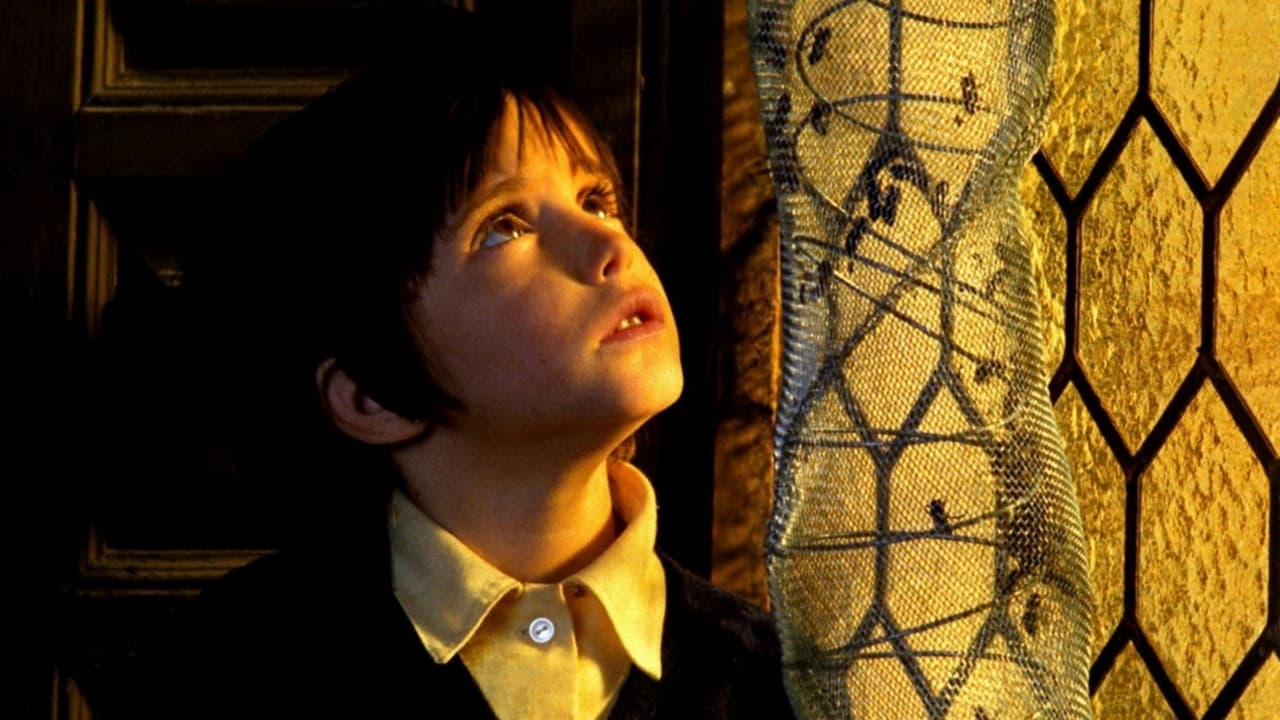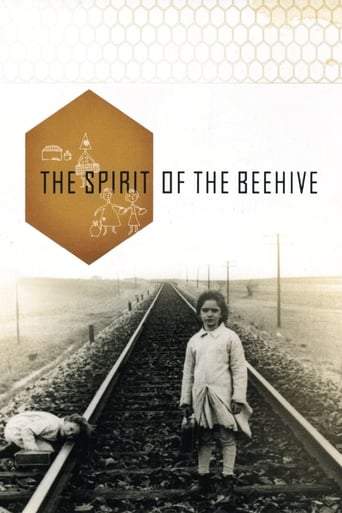

It is both painfully honest and laugh-out-loud funny at the same time.
... View MoreBlistering performances.
... View MoreThe movie's not perfect, but it sticks the landing of its message. It was engaging - thrilling at times - and I personally thought it was a great time.
... View More.Like the great film, it's made with a great deal of visible affection both in front of and behind the camera.
... View MoreI hope I'm not the only one who thought that. That's all I wanted to say.
... View MoreI am proud to say that I have just added a NEW TOP FILM to my favorites list. :)The Spirit of the Beehive took me through probably one of the GREATESTEXPERIENCES of my life. Honestly, judging form the plot on IMDb, I did not think it would be that good. Now, after watching it, I declare it to be the MOST BREATHTAKING movie I have scene in a verrry long time.It is SET IN 1940, and LITTLE Ana and her older kid-sister, Isabel, venture around their Spaniard country-side where they attend school, go mushroom picking with their father, discover a deserted building, and most importantly, WATCH MOVIES at their local cinema house.Ana is mesmerized after watching the new film in town, James Whale's Frankenstein (1931), where her sister tells her lies to scare her even more of the monster. I love that while the movie is playing, they show the scene where Frankenstein's Monster encounters a little girl and is shown to be harmless by playing with her, but obviously the villagers will think otherwise.CHILDHOOD, in many ways, is one of the most beautiful things to portray on the big screen. Especially, because it is an adult re-creating these moments that have some similarity to their own youth (or I would hope so in Victor Erice's case); the innocents, freedom, imagination, energy, and even purity that comes from us when everything was so simple.****The girl who plays Ana put me to tears towards the end of this story. I could not help but get a little emotional, because not many directors can really show what it is like to be a kid again.
... View MoreFirst off, I was watching this film because I decided to go through the Sight and Sound poll of best films and check out a few I hadn't seen. "Spirit of the Beehive" didn't really grab me that much in the description, but I thought the slow pacing might bring to mind the kind of art house style created by Michaelangelo Antonioni in his "ennui trilogy" which I am consistently fascinated by even after several repeat viewings.I'll be honest, I was bored throughout the first 45 minutes or so. However, Ana Torrent, the primary child actor, has an amazing face that Erice's camera just adores, so I hung in. Gradually, I came to a more open-hearted way of seeing this film just for what it is, rather than having any expectations of it having to "do" something to draw me in.This film graciously asks you to open up to it, and if you aren't willing to do that; well, perhaps you've seen the kind of reviews here saying how this film is dull and pretentious.There are sublime gifts to be had in the experience of viewing "Beehive," but it does ask you to expand your perceptual awareness in a way I feel helpless in trying to elucidate precisely. All I can say is three-quarters of the way in, I surrendered to it with humility, and it started feeling like a work of art.I'm sure the situation is similar with people who find Antonioni's films dull and pretentious. His critically acclaimed trilogy (two of which made the best of list) can seem excruciatingly boring to some, but in my case, I totally "got" where Antonioni was coming from and felt right at home in an instant, just like many of the positive reviewers here have described with Erice's film.This is why I love viewing foreign films of distinction; they really compel me to imagine a wider, inter-dimensional plane of perception.
... View MoreThis is one of the most ponderously dull movies I have ever seen. I have read about all the 'metaphors' herein and I am not a dumb person, and this is absolute drivel. I understand that the characters represent Spain and Franco and it's very political. I understand the undertones about the power of youthful imagination and the magic of cinema. That being said, I have no idea how it is rated as the best movie from Spain ever, much less the best movie of the seventies. This is supposedly one of Guillermo Del Toro's faves, and I have to say I enjoyed every single one of his movies, even the atrocious Blade II, far more. To give you some perspective, I LOVE the movie Solaris (the original), which I thought was the slowest paced film ever made until I had watched a single hour of this movie. If you can get through the first hour without going into an art-house coma or becoming unspeakably pretentious about supposedly 'metaphorical' pseudo imagery, then I salute you. Supposedly this movie is heavy on metaphor, which I take to mean that the movie is a metaphor for what it must be like to be a child with the dullest existence possible. The little girl that plays Ana is very good, but this movie is akin to reading a book of Richard Dawkins' with a hipster outside a cafe in France while listening to the Shins: That is, as pretentious and boring as possible.Do yourself a favor and watch the beginning if for no other reason than that you can then argue about it when someone brings it up at a party trying to sound smarter than you. Don't blame me if you are falling asleep twenty minutes in though.
... View More